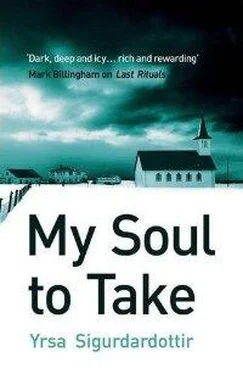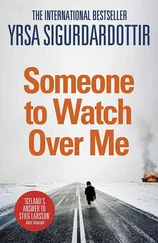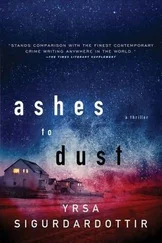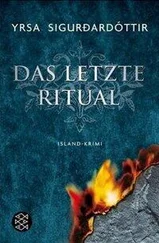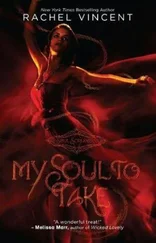Thóra looked at Matthew and gave a shrug. “Why not,” she said.
They followed Berta out of the room and stood by her side as she conscientiously locked it behind them. On the way out, Thóra grabbed the chance to ask her whether she had come across any old Nazi memorabilia while packing, or whether Birna had mentioned it at all.
Berta spun around on the front steps and looked at Thóra, baffled. “No, why do you ask?”
“I just wondered,” Thóra said. “There’s some in boxes in the hotel basement.”
“Really?” Berta said, not attempting to conceal her surprise. “That does seem strange. Could it belong to someone outside my family?”
“Maybe,” said Thóra, although she knew better. “And another thing,” she went on as they resumed walking, “do you recognize the name Kristín?”
“Kristín Sveinsdóttir?” Berta said without turning around. Thóra’s heart skipped a beat. “We were in school together for years. I haven’t seen her for ages, though.” Then she turned to Thóra. “Do you know her?”
Thóra tried to hide her disappointment. “No, I was thinking about another Kristín who might have lived here or locally a long time back.”
Berta shook her head. “No, I don’t recall anyone by that name. I’m not the right person to ask about the old folks. Mum might be able to help you on that.”
Fat chance, thought Thóra. “Is this the hatch?” she asked, pointing to a steel plate with a welded handle where Berta had stopped. They were about twenty meters behind the house.
“Yes,” said Berta. “There’s nothing remarkable about it. Do you want to open it?” she asked, signaling that Matthew should do so if he wanted.
He bent down and struggled to lift the heavy cover. The hinges creaked when he tugged, but he couldn’t open it. “What’s down there?” he asked.
“Nothing,” Berta said. “It was used for storage, as far as I remember. There’s an entrance from the basement. I think coal used to be kept here for heating the house in those days. It hasn’t been opened since God knows when. The house has had electrical heating for as long as I can recall.”
“Could we have a look in the basement?” asked Matthew, wiping his dirty hands on the grass.
Berta nodded, but warned him that there was nothing down there. She accompanied them down the steps, and after walking through a little door at the far end of the basement and along a short, almost tunnellike corridor, they reached a steel door, which she pushed open. Inside was nothing but darkness. In the tiny light from the basement they managed to see that the coal store was covered in black dust with occasional black lumps on the floor.
“It’s gross, really,” Berta said as she closed the door again. “Birna wouldn’t have been interested in this. I don’t remember her ever even coming into this basement.” She walked over to the stairs. “Of course, she was usually here by herself, so she may well have taken a look, but I can’t imagine why she would have.”
Back on the ground floor, Thóra and Matthew decided to call it a day. They said goodbye to Berta and thanked her for her help. Matthew sent his regards to Steini, while Thóra struggled to suppress the urge to ask what had happened to him. Suddenly the question slipped out. “Berta, I hope you don’t mind me asking, but what happened to your friend?” she said in a low enough voice to be inaudible in the kitchen.
Berta sighed heavily. “He was in a car crash. A car hit his and it caught fire. He was smoking,” she said, her voice as low as Thóra’s.
“Jesus,” said Thóra. “That’s awful. Is he paralyzed?”
“No,” replied the girl. “At least, there’s no spinal damage. His legs are just in such a bad state that he can’t walk properly. Some of the muscles were burned, and the skin transplant is still bothering him. Hopefully I’ll be able to get him to start physiotherapy again soon. It just takes time.” She took a quick peek around the corner to make sure Steini was out of earshot. “The worst part is that the man who drove into him was drunk. Steini was stone-cold sober.”
“And what happened to him?” Thóra asked. “Was he punished?”
Berta smiled coldly. “You could call it that. He died in the accident. His wife too.” She paused for a moment as if deciding whether to say more, then went ahead. “They were from a farm around here, actually. Their daughter is Rósa, Bergur’s wife.”
Well, I never, Thóra thought. All roads led to Bergur the farmer.
Thóra sat at the computer in Jónas’s office, speaking to him on the phone. “The police will present the judge with evidence of your alleged guilt, and I’ll try to show that it’s irrelevant or insufficient. Afterward the judge will question you and you have the chance to answer the allegations. You aren’t obliged to answer, but I don’t recommend you refuse, except in absolutely exceptional circumstances.”
“Don’t I get the opportunity to plead innocent?” asked Jónas, frightened. “I can’t believe the judge won’t be able to see that I’m telling the truth. Judges have to be particularly insightful, don’t they?”
Thóra could not prevent a laugh from escaping her and had to put her hand over the mouthpiece. “Jónas,” she said, recovering herself, “judges are just ordinary people and they can reach wrong conclusions like anybody else. Also, the judge has to take into account the evidence presented to him. If it clearly indicates that you’re guilty or hiding something, he has to base his decision on that, no matter how convincingly you declare that you’re innocent.”
“I’m scared shitless,” Jónas said feelingly. Thóra hoped he could reproduce this level of emotion when he pleaded innocent the next morning. You never knew with judges.
“Of course you are, Jónas,” she said, “but don’t let it overwhelm you. Just remember that I’ll be with you tomorrow, and hopefully it will all turn out fine.”
“What are you going to say?” he asked. “Will you come up with something new?”
“Well, a lot of things would have to happen tonight. You’re being brought before the judge at ten o’clock, and I doubt that I can find anything out by then.” There was no mistaking the desperation underlying the silence on the other end of the line. “But I’ll do everything in my power, I promise.”
“Anything!” said Jónas. “If only you could find the murderer, or someone who’d pretend to be him!”
“I’d have to try pretty hard to find an actor who’ll confess in court to a crime he didn’t commit.” Thóra jiggled the mouse and the screen in front of her lit up. “What’s your password, Jónas? I’ve switched on your computer but I can’t get in.”
“hashish,” Jónas said. “All lowercase.”
Thóra groaned. “Are you out of your mind?” she said. “I’ll change it. If the police were to confiscate your computer, that’s not the sort of password we want them to see. I’ll choose something more innocent.” Immediately after they rang off she changed the password. “amnesty,” she said out loud. “All lowercase.”
“Who are you talking to?” asked Matthew as he came in. “The ghost?”
Thóra looked up, smiling. “Yes, I thought it was worth a try. Maybe it can tell us the name of the murderer before ten tomorrow morning.”
Matthew flung himself theatrically into the chair facing Thóra. He tossed a thick bundle of papers on to the desk. “I identified several of the cars,” he said.
Thóra picked up the papers. Matthew had taken the list out to the parking lot to check whether any vehicle belonging to the guests or staff had gone through the Hvalfjördur Tunnel the day Eiríkur was killed.
Читать дальше
